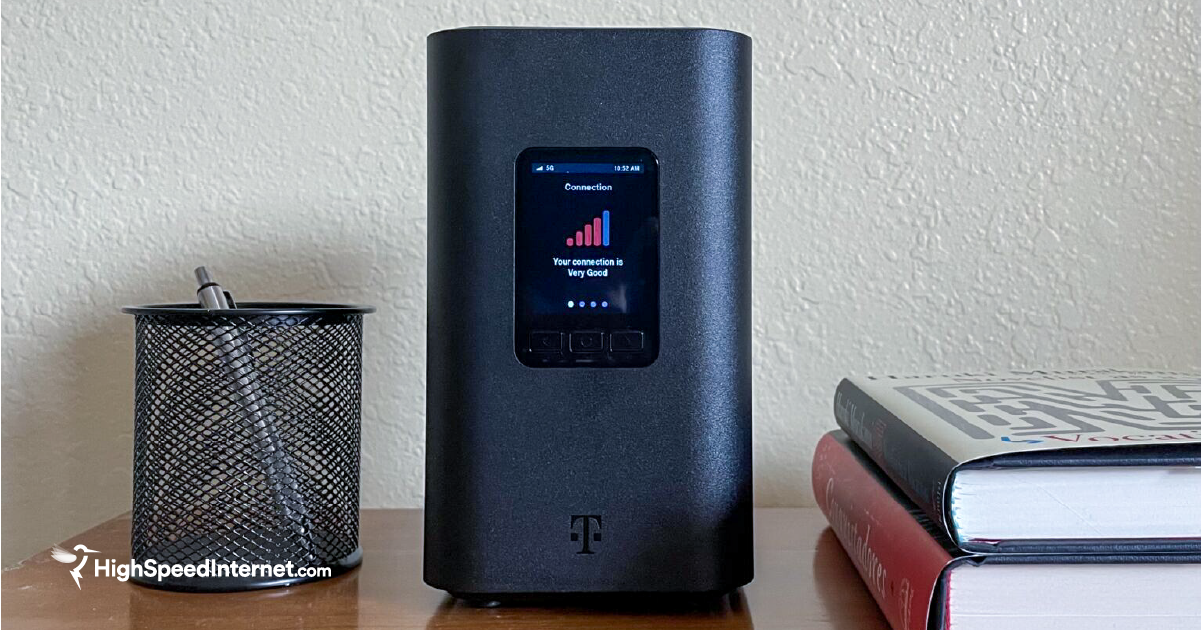Upgrade Your Gear: The 5 Best Gaming PCs for 2018
Oct 31, 2018 | Share
Equipment Guides, Gaming
Jump to: Gaming PCs Comparison Table | PC Descriptions | Features & Peripherals | FAQs
Step into the future with a new Gaming PC.
From exploring open-world landscapes in 4K Ultra HD to reveling in the magic of virtual reality (VR), you need a powerful machine to truly experience the today’s top-end games. And there’s nothing that will hold you back more than noob equipment.
So, if you’re tired of getting pwnd, it might be time to level up to one of these high-powered gaming desktops, or learn to build your own gaming PC.
Best PCs for Gaming
Specs and Features Comparison
| Model | Processor (CPU) | Graphics Card (GPU) | Memory (RAM) | Price | Order online | |
|---|---|---|---|---|---|---|
| CORSAIR ONE ELITE | Intel Core i7 8700K | NVIDIA GeForce GTX 1080 Ti (11GB) | 32 GB 2.7 GHz | $$$$ | View on Amazon | |
| Dell Alienware Aurora R7 VR | Intel Core i7 8700K | NVIDIA GeForce GTX 1080 (8 GB) | 16 GB 2.7 GHz | $$$ | View on Amazon | |
| ZOTAC MEK1 | Intel Core i7-7700 | ZOTAC GeForce GTX 1070 Ti (8 GB) | 16 GB 2.4 GHz | $$ | View on Amazon | |
| Dell XPS Tower Special Edition 8930 | Intel Core i7-8700 | NVIDIA GeForce GTX 1060 (6 GB) | 16 GB 2.7 GHz | $ | View on Amazon | |
| CyberPowerPC Gamer Xtreme VR | Intel Core i5-8400 | AMD Radeon RX 580 (8 GB) | 8 GB 3 GHz | $ | View on Amazon |
| Model | CORSAIR ONE ELITE |
| Processor (CPU) | Intel Core i7 8700K |
| Graphics Card (GPU) | NVIDIA GeForce GTX 1080 Ti (11GB) |
| Memory (RAM) | 32 GB 2.7 GHz |
| Price | $$$$ |
| Order online | View on Amazon |
| Model | Dell Alienware Aurora R7 VR |
| Processor (CPU) | Intel Core i7 8700K |
| Graphics Card (GPU) | NVIDIA GeForce GTX 1080 (8 GB) |
| Memory (RAM) | 16 GB 2.7 GHz |
| Price | $$$ |
| Order online | View on Amazon |
| Model | ZOTAC MEK1 |
| Processor (CPU) | Intel Core i7-7700 |
| Graphics Card (GPU) | ZOTAC GeForce GTX 1070 Ti (8 GB) |
| Memory (RAM) | 16 GB 2.4 GHz |
| Price | $$ |
| Order online | View on Amazon |
| Model | Dell XPS Tower Special Edition 8930 |
| Processor (CPU) | Intel Core i7-8700 |
| Graphics Card (GPU) | NVIDIA GeForce GTX 1060 (6 GB) |
| Memory (RAM) | 16 GB 2.7 GHz |
| Price | $ |
| Order online | View on Amazon |
| Model | CyberPowerPC Gamer Xtreme VR |
| Processor (CPU) | Intel Core i5-8400 |
| Graphics Card (GPU) | AMD Radeon RX 580 (8 GB) |
| Memory (RAM) | 8 GB 3 GHz |
| Price | $ |
| Order online | View on Amazon |
As you can see, gaming PCs aren’t exactly cheap. And if you don’t already have a monitor, you’ll need to factor that into your budget as well. The prices listed in our chart don’t include monitors, which also have a huge effect on your gaming experience.
See our recommended gaming monitors post for help choosing the best one for you.
The PCs
There’s nothing ancient about this list—all the PCs we recommend come VR-ready and pre-loaded with Windows 10 operating systems. That’s the big stuff. But it’s the differences in the small stuff that will help you decide which one is best for you. Let’s dive in a little deeper so you can choose your gaming rig wisely.
- Intel Core i7 8700K
- 6 core
- 4.7 GHz
- NVIDIA GeForce GTX 1080 Ti graphics card
- 1.3 TFLOPS
- 11 GB GDDR5X VRAM
- 32 GB of RAM, 2.7 GHz
This machine is a powerhouse. With the CORSAIR ONE ELITE, you can take on serious games at full capacity. Its processing power and graphical capabilities run notoriously demanding games like Crysis 3 and Batman: Arkham Knight on the highest settings.
While this PC performs like a race car, it runs quieter than a whisper. With running noise virtually eliminated, you remain fully immersed in the game without being distracted by the unending hum you get with many other powerful machines.
The downside is that you’ll have to pay for all that power. It’s almost twice the price of the other PCs we recommend. But if you want the best hardware to run the best games, go with the CORSAIR ONE ELITE. It certainly gives you what you pay for.
![]() Pros:
Pros:
- Amazingly powerful
- Easily upgradeable
- Unbelievably quiet
![]() Cons:
Cons:
- May have to sell your car to afford it
- Intel Core i7 8700K
- 6 cores
- 4.7 GHz
- NVIDIA GeForce GTX 1080 graphics card
- 9 TFLOPS
- 8 GB GDDR5X VRAM
- 16 GB of RAM
The Alienware Aurora has the power to run current high-end games and the flexibility to upgrade for games of the future. It has nearly as much power as the CORSAIR ONE but for a fraction of the cost. While its graphics card is slightly less powerful, this entire machine was designed for versatility, so it’s something you could upgrade down the line.
The innovative design of the Alienware Aurora lets you access your motherboard and card slots—no screwdriver required. And it’s built to standard specs to make plug-and-play upgrades simple. It even has a built-in swinging arm to keep them securely in place.
We list a slightly smaller storage capacity as a con here, but it’s still 1 TB, so it won’t be an issue that affects most gamers. The storage has nothing to do with functionality, but if it’s too low, you can’t store quite as many games at once. Again, this won’t be a problem for the average gamer.
For a pro-level gaming PC you can improve upon going forward, get the Alienware Aurora R7.
![]() Pros:
Pros:
- Pro-gamer quality
- Toolless access to motherboard and card slots
- Easy to upgrade
![]() Cons:
Cons:
- Slightly smaller storage capacity than some machines
- Intel Core i7-7700
- 4 cores
- 4.2GHz
- ZOTAC GeForce GTX 1070 Ti graphics card
- 7.8 TFLOPS
- 8 GB GDDR5
- 16 GB of RAM
With a design inspired by robotics and offering multiple lighting options, the ZOTAC MEK1 has the look you want for your gaming command center. But don’t let the good looks fool you—this pretty boy packs a punch.
While the MEK1 processor has only four cores as opposed to six like the other machines we recommend, it still has enough power to run top-end games at high resolution. You can crush some noobs or take on the pros and look good doing both.
Get ready for the future of gaming with a machine that looks like it’s already been there, the ZOTAC MEK1. It will have you feeling like a winner before you even turn it on.
![]() Pros:
Pros:
- Cool futuristic design
- Mouse and keyboard included
![]() Cons:
Cons:
- Slightly less powerful components
- Intel Core i7-8700
- 6 cores
- 4.6 GHz
- NVIDIA GeForce GTX 1060 graphics card
- 4.4 TFLOPS
- 6 GB GDDR5 VRAM
- 16 GB of RAM
If you want a good computer but don’t want to drop a lot of cash, this is the computer for you. The Dell XPS Tower Special Edition has the power to run most games and costs a fraction of what other top-end gaming PCs do.
The main difference between this computer and the others we recommend is that its graphics card has 6 GB instead of 8 GB or more. But you can still run graphics-heavy games like Grand Theft Auto V on machines with 2 GB video cards.
You might have issues if the next generation of games is more demanding though. And with VR becoming more affordable and popular, that will be the case. But, you can easily upgrade the XPS Tower Special Edition with more powerful graphics cards when the time comes.
![]() Pros:
Pros:
- More affordable than higher-end options
- Powerful processor for top-end gaming
![]() Cons:
Cons:
- Slightly slower graphics card
- Intel Core i5-8400
- 6 cores
- 2.8 GHz
- AMD Radeon RX 580 graphics card
- 6.2 TFLOPS
- 8 GB GDDR5 VRAM
- 8 GB of RAM
Priced to appeal to everyone, the CyberPowerPC Gamer Xtreme is perfect for gamers who would rather spend their cash on more games. If you’re looking to test the PC-gaming waters, this machine is a great low-cost entry point that also happens to look pretty sweet. Don’t worry about the low price bringing low performance—it won’t. Most of the hardware on the Gamer Xtreme is comparable to computers that cost twice as much.
The Gamer Xtreme doesn’t have the RAM of the more expensive PCs, so if you want to run the most demanding games on the highest settings, you’ll want to buck up for a more powerful PC. But the Gamer Xtreme will do the trick for most games.
Casual gamers, retro-gamers, and noobs newbies should take advantage of the Gamer Xtreme. You’ll get plenty of power for the majority of games without a huge investment up-front.
![]() Pros:
Pros:
- Lowest price on our list
- Mouse and keyboard included
![]() Cons:
Cons:
- Slightly lower RAM
What to Look For in a Gaming Desktop
Don’t worry if all this technical jargon is overwhelming. There are a lot of details that go into how well a computer runs complex games. Here are the most important things to know so you don’t get pwnd before you start.
Processor (CPU) Speed
The processor performs the rapid calculations that make a computer work. It’s essentially the brain of the computer. Several factors affect processing speed, but the number of cores it has is a big one. Usually the more cores, the faster the processor, but there are exceptions.
Processing speed is measured in gigahertz (GHz). Generally speaking, computers with faster processors (more GHz) can perform more tasks at a quicker rate, which is exactly what you’re looking for to run big, beautiful games.
That was the simplified explanation of a processor. For a more detailed explanation of the relationship between your CPU and your gaming experience, check out “How Much Does Your CPU Matter When Gaming in 2018?”
Graphics Card/Graphics Processing Unit (GPU)
There are three basic measurements to look for in a graphics processor: FLOPS, video memory (video buffer), and speed in GHz. As with any processor, generally more is better.
FLOPS: FLOPS is short for floating operations per second. It’s an indication of how efficient a graphics processor is. Some brands of graphics cards don’t list FLOPS, but there’s a formula for figuring it out. Fortunately, several third-party comparison sites calculate FLOPS and publish them, so you can usually find what you need. This number can get large, which is why you’ll sometimes see FLOPS listed as GFLOPS (a million FLOPS) or TFLOPS (a trillion FLOPS).
Video Memory: Video memory (VRAM), sometimes called video buffering, is RAM stored on your video card that’s designated for video processing. More video memory generally means you can run games at a higher resolution. The clarity of high-resolution graphics can be the difference between seeing the game world and being immersed in it.
Clock Speed: Clock speed is essentially the tempo of a processor. Think of it as how often the computer is ready for the next task. For most computer programs, the clock speed moves quickly enough to be unnoticeable, but some games will struggle if it’s too slow. Games that require huge amounts of graphical information changing by the microsecond can overload a weak processor. With gaming computers, you have two clock speeds to think about: your CPU clock speed and your GPU clock speed.
Random-Access Memory (RAM)
Random-access memory (RAM) is a 2013 Daft Punk album the physical location a computer stores data during processing. Gaming computers do a lot of processing, so they need a lot of RAM. If your computer doesn’t have enough RAM, your processor may be forced to work harder to keep up. Overworking a processor can cause it to overheat and damage your chipset.
So . . . don’t skimp on the RAM.
Peripherals
Monitor: Your computer monitor can have a significant effect on your gaming experience. The main thing to look for in a monitor is a high frame rate or refresh rate. See our best monitors for gaming for the specifics.
Mouse: A gaming mouse can range anywhere from a standard two-button mouse with a scroll wheel to a bulky, button-laden ball of intimidation that never quite fits your hand. Put practicality first.
Go with something that tracks your movements well and feels comfortable in your hand. Try before you buy if you can.
How many buttons you need and whether they need to be static or programmable depends entirely on the games you intend to play. Check if your game has suggestions for the best type of mouse to use.
Keyboard: You can find keyboards specifically designed for gaming, but this is more of a luxury than a necessity. Some gaming keyboards, like this one-handed model, can get extreme.
A standard keyboard will do the job for most games. If you play a lot of keyboard-intensive games, you may want to find something ergonomic just so it’s comfortable. It’ll also help you avoid repetitive-use injuries like carpal tunnel syndrome.
Unconventional models may give you a slight advantage in some games, but you’ll also likely experience a learning curve when you start using them. Be prepared to get worse before you get better.
Controllers and Joysticks: Many games designed for PCs don’t require extra controllers, but if you’re using an emulator to play console games on your computer, you will enjoy them much more if you have a console-type controller or joystick.
You can find several PC controllers (like this one) that are designed like console controllers. There are also online guides that show how to get your actual Xbox One, PlayStation 3, or PlayStation 4 controllers to work with your PC.
Virtual Reality (VR) Interface: All the computers we recommend in this article come VR-ready, but you still need a VR interface to participate in any virtual reality experience. The two most popular VR interfaces for gaming are the Oculus Rift and the HTC Vive. Virtual reality is still new, but prices will become more affordable as the technology improves.
Congratulations! You leveled up.
- Intelligence +1
- New ability unlocked: PC Purchase Power
You are now empowered to buy your gaming PC. You know what to look for and which options are the best. Now it’s time to get your equipment and prepare for raid night.
Pro Tip: If you plan to game online, you need a reliable internet connection with good download speed and decent upload speed. Worried your connection might not make the cut? Enter your zip code to see internet providers in your area.
FAQs about Gaming Computers
What is the best gaming PC brand?
The CORSAIR ONE series has the best specs. Alienware, a branch of Dell, has several affordable, high-powered models with good reviews. MSI also has several good gaming PCs, although it didn’t have a model that stood out enough for us to recommend it.
What are the specs for a good gaming computer?
Here are the minimum recommended specs for gaming PCs:
| Most Games | Top Games at Full Settings | ||
|---|---|---|---|
| Processor Speed | 2.5 GHz | 4 GHz | |
| TFLOPS | 1.75 | 3.5 | |
| VRAM | 2 GB | 4 GB | |
| GPU Speed | 800 MHz | 1.25 GHz | |
| RAM | 6 GB | 12 GB |
How much does a decent gaming PC cost?
The gaming PCs we recommend start at around $700.00, but you can find some decent machines for less than that. Be aware that cheaper computers tend to have weaker hardware. They may run the games you like now, but they could quickly become obsolete—especially as VR grows in popularity.
Author - John Dilley
With over five years writing about the internet industry, John has developed a deep knowledge of internet providers and technology. Prior to writing professionally, John graduated with a degree in strategic communication from the University of Utah. His education and experience make his writing easy to understand, even when covering complex topics. John’s work has been cited by Xfinity.com, PCMag, The Washington Post, Los Angeles Times, and more.











